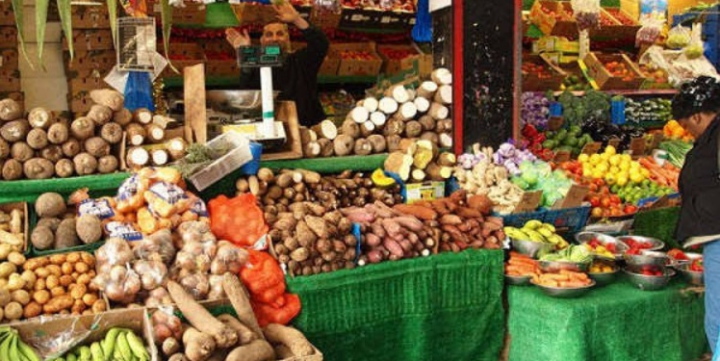The collaborative efforts of the United States Department of Agriculture (USDA) and the Nigerian Economic Summit Group (NESG) have resulted in a call for the Nigerian Federal Government to establish comprehensive policies and regulations aimed at elevating food safety standards within the nation.
The urgency of this plea was highlighted during the third workshop on ‘Food and Feed Expertise Coordination’ held in Abuja, where experts emphasized the critical need to address and enhance food safety practices, particularly in light of the fact that over 70 percent of Nigeria’s food exports are rejected abroad.
In a statement released on Thursday, as reported by Infostride News, the NESG CEO-Designate, Dr. Tayo Aduloju, underscored the paramount importance of Nigeria’s commitment to upholding the highest food safety standards. He stressed that collaborative efforts and the pooling of collective expertise would play a pivotal role in strengthening regulatory frameworks and improving the overall quality of food and feed in the country. With over 70 million hectares of agricultural land, Nigeria holds vast potential for economic growth and development. However, for the agricultural sector to thrive, effective regulatory, institutional, and policy frameworks are deemed essential.

Dr. Aduloju emphasized the significance of addressing the existing gaps in food and feed safety systems, not only to enhance the well-being of citizens but also to positively impact Nigeria’s standing in international trade. Acknowledging the potential benefits of the African Continental Free Trade Area (AfCFTA), he asserted that reforming food and feed safety systems in Nigeria is inevitable for the country to effectively leverage opportunities in international trade.
As the global landscape continues to evolve, Dr. Aduloju highlighted the critical role of efficient food and feed safety systems in safeguarding public health, ensuring the integrity of agricultural produce, and fostering consumer confidence in the products that reach their tables.
Dr. Emmanuel Odu, Senior Special Advisory to the Coordinating Minister of Health and Social Welfare, representing Prof. Mohammed Ali Pate, Coordinating Minister of Health and Social Welfare, emphasized citizens’ right to access nutritious and safe food that promotes well-being. He revealed the Ministry’s plans to validate the revised National Policy on Food Safety & Quality and its Implementation Plan for 2023. Additionally, the Ministry aims to launch the first National Integrated Guidelines for Foodborne Disease Surveillance and Response.
The deliberate efforts by the Ministry are geared towards attaining the required National Health Security Status in Nigeria. The revised policy will address new and emerging areas to enhance regulatory, enforcement, and data-gathering systems for greater effectiveness, efficiency, and robustness. Simultaneously, the guidelines will establish a roadmap for the integrated surveillance of foodborne diseases and define protocols for responding to food safety emergencies in the country.
Kent Sission, President of the Food and Agriculture Export Alliance (FAEA), highlighted the collaborative initiatives between the organization and Nigerian government agencies responsible for ensuring the safe production and consumption of food and animal feed. Sission emphasized that the FAEA works closely with various stakeholders, including the USDA, USAID, the University of Missouri, and the NESG, to contribute to the advancement of food safety standards in Nigeria.
The third workshop on “Food and Feed Expertise Coordination,” organized by the USDA, NESG, FAEA, USDA, the University of Missouri (MU), and Nigeria’s Federal Ministry of Health and Social Welfare, aimed to launch a three-day program for high-level officials and technical experts from the Nigerian food industry and regulatory bodies. This program aimed to advance the action plan formulated at the conclusion of a previous workshop held in December 2022.
To provide a comprehensive and long-term food safety and quality framework for implementation across Nigeria, new Technical Working Groups (TWGs) were introduced. These TWGs are expected to offer the necessary expertise and leadership to facilitate effective communication, capacity-building, and strategic partnerships among stakeholders.
Recognizing the critical role of food in the health and well-being of Nigerians, the three-day food safety expert workshop built upon the outcomes of the previous year’s Food and Feed Safety Transformation Dialogue. During this dialogue, stakeholders urged the government to pass the National Food Safety and Quality Bill into law, emphasizing the need for a legislative framework to address and enhance food safety practices in the country.
The statement from Infostride News highlighted that the United States, drawing from its experiences with the US Food Safety Modernization Act, provided valuable advice to guide Nigeria’s food quality and safety agenda. At the conclusion of the workshop, the Food Safety Committee directed the TWGs on providing insightful feedback that could inform regulatory decisions, marking a significant step forward in advancing food safety standards in Nigeria.
Support InfoStride News' Credible Journalism: Only credible journalism can guarantee a fair, accountable and transparent society, including democracy and government. It involves a lot of efforts and money. We need your support. Click here to Donate
